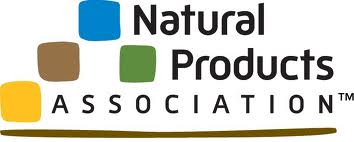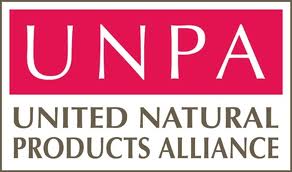Adam Ismail
Executive Director, Global Organization for EPA and DHA Omega 3s (GOED)

There is one clear lesson I have seen both in the omega-3 sector and the broader nutrition industry: Our industry needs to proactively communicate and educate consumers more. In the omega-3 market we have seen a decline in sales that has been caused by consumers forgetting about omega-3s. For decades sales have grown because the media touted the positive science on omega-3s, but they very rarely do anymore. If the media is not talking about the benefits of omega-3s, who else is going to? The industry is the ONLY group that has a motivation to do so, thus it is our responsibility to be proactive about it if we still want to have a thriving industry.
I think the same lesson applies to the broader nutrition industry as well. Supplements are under attack for largely unfounded reasons and nobody, other than the industry, has a motivation to build a positive image for supplements. We spend far less on advertising and marketing as an industry than other consumer product categories, but now is the time we need to invest in getting the positive messages out.

Michael McGuffin
Executive director, American Herbal Products Association

The mid-term elections will likely benefit the industry in 2015. Republicans won a majority in the Senate and will control both chambers in the 114th Congress. Republicans’ general aversion to burdensome regulations will be welcomed by most private industries. In addition, historic turnover provides a unique opportunity for the industry to forge new allies in Congress.
The implementation of the Food Safety and Modernization Act (FSMA) will impact many companies beginning in 2015. FSMA is the biggest change to the Food, Drug and Cosmetic Act and it will completely change the rules for ingredient suppliers and food companies. With FSMA implementation beginning in 2015 and 2016, there will be a steep learning curve and AHPA will be developing resources and trainings to help the industry understand and implement FSMA.
The Food and Drug Administration’s (FDA’s) focus on enforcing the current good manufacturing practice (cGMP) requirements is likely to continue in 2015. AHPA will continue to dedicate significant resources to ensure companies are prepared when the FDA inspects their facility.

Steve Mister
President and CEO, Council for Responsible Nutrition

CRN learned much this year, but one of the most valuable lessons was to keep moving forward with our legislative agenda despite the naysayers and cynics who thought we couldn’t pass the Designer Anabolic Steroid Control Act in this Congress. Despite partisan wrangling, we kept reminding Congress this legislation is good for consumers
and good for responsible industry, and in the end, Congress listened and unanimously approved DASCA. This experience demonstrates you can still effect change in Washington. Tenacity, confidence and “shoe leather” still combine to make things happen.

Daniel Fabricant, PhD
CEO, Natural Products Association

After rejoining the Natural Products Association (NPA) as CEO earlier this year, it became very clear that in many political aspects, our industry is in the same place now as we were three years ago. My biggest takeaway since returning is that we need industry-wide change with those political matters for us to continue to thrive. Politics have changed greatly since 2010; we’ll need to adapt, both in how we handle our work on Capitol Hill and with federal agencies, how we communicate with the media and consumers to spread the right message about our products, and how we raise funds for our most crucial issues and supporters. Trade associations and advocates for natural products will also need to increase our engagement with the younger generation, as it is comprised of our future supporters. One way to reach these younger consumers, many of whom already value leading healthier, natural-based lives, is to increase our efforts in the realm of social media, as NPA has actively done over the last several months and will continue to do more so in the new year. Overall, as an industry, we need to step up our efforts and make sure we are properly equipped and aligned to deal with the issues and changing landscape we’re faced with in 2015. The status quo, and past practices can no longer be a guarantee of success.

Loren Israelsen
President, United Natural Products Alliance

In late October, UNPA communications director Frank Lampe and I had the distinct honor and pleasure to attend and participate in the Personalized Lifestyle Medicine Institute’s second Thought Leaders Consortium in Seattle, held in partnership with the Institute for Systems Biology, where we sat down with, interacted with and learned from some of the smartest people on the planet. Two days of presentations and discussions provided participants with an understanding of how genetics, genomics, personal medicine and the concept of “N = 1”-based research will revolutionize medicine and healthcare, and by direct association, the dietary supplement and natural health products industry. We are encouraged by and confident that the ongoing work of these visionaries and their colleagues is leading us rapidly to a time—in the very near future—when many of the chronic diseases we know today will not be chronic at all and when our shared vision of health and wellness for all is that much closer to reality.
